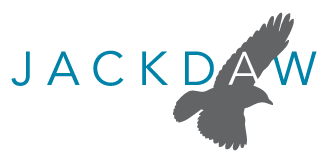Facebook is holding its F8 developer conference today in San Jose. Its first-day keynote covered a lot of ground, but the major theme was augmented reality. The comment below may be attributed to Jan Dawson, Chief Analyst, Jackdaw Research. Jan can also be reached via email at jan@jackdawresearch.com for further comment and is also on-site at F8.
Facebook has been slow to get into augmented reality and related technologies, focusing instead on the more mature but less mainstream virtual reality. This year’s keynote shows Facebook is serious about catching up in this area and competing with Snapchat and others. What’s interesting given Facebook’s ownership of Oculus is that Facebook is very focused on the phone and not a headset for its AR vision, at least for now. It still sees glasses or even contact lenses as the eventual outcome, but for now is working on phone tools, which places it in direct competition with Snapchat.
The new tools and apps Facebook demoed on stage today around augmented reality are impressive, but most of them won’t be in users’ hands anytime soon. Mark Zuckerberg’s closing remarks on AR were notable for their tone of expectation management, and he made clear that this is going to be a long road, with the vision he outlined today playing out over years and not weeks or months. But having come into this market late, Facebook is clearly getting aggressive now, and the demos on stage actually looked better than the similar Snapchat features announced earlier today. They won’t all be available right away, but Facebook has the resources to move fast in this area and the audience to spread those features much more widely than Snapchat. All of this is setting up a really interesting competition between not just these two companies but also others which will enter the market. The big question is who will capture developer interest and importantly give those developers opportunities to make money.
Facebook also overhauled its Messenger Platform, which launched last year, and went as far as to call it Messenger Platform 2.0. That kind of separation from the version launched a year ago is smart, because the first round was ill thought out, with the vision for bots both too expansive and not nearly detailed enough. In the year since, Facebook has made a lot of progress, and the version of bots it now offers to developers is much more compelling and better suited to the kinds of things it will be used for. Facebook is also getting better at serving small and medium sized businesses, which continue to make up an enormous chunk of the total base of businesses in many markets. That’s important because these businesses represent the biggest future opportunity for Facebook advertising, which is already well penetrated among larger enterprises.
Lastly, Facebook introduced its first social VR product, which is critical to unifying its main business and its Oculus business. Facebook Spaces is a VR app which allows avatars of up to three friends to interact in a virtual space, and seems like it would be a lot of fun if you had several friends who also had really expensive VR rigs. The big challenge is that for the vast majority of people on Facebook, none of their friends will have the technology, and so the best they can hope for is calling out via Messenger Video to share their virtual worlds with real-world friends. Though these experiences will come to other, cheaper VR platforms in time too, the narrow reach of Oculus VR and VR in general highlights why Facebook is smart to start working hard on AR, which has much more mainstream potential.
